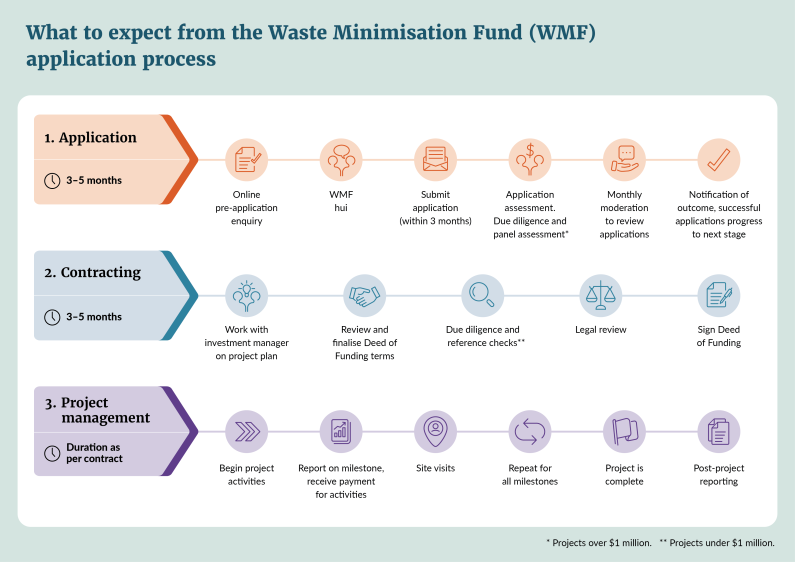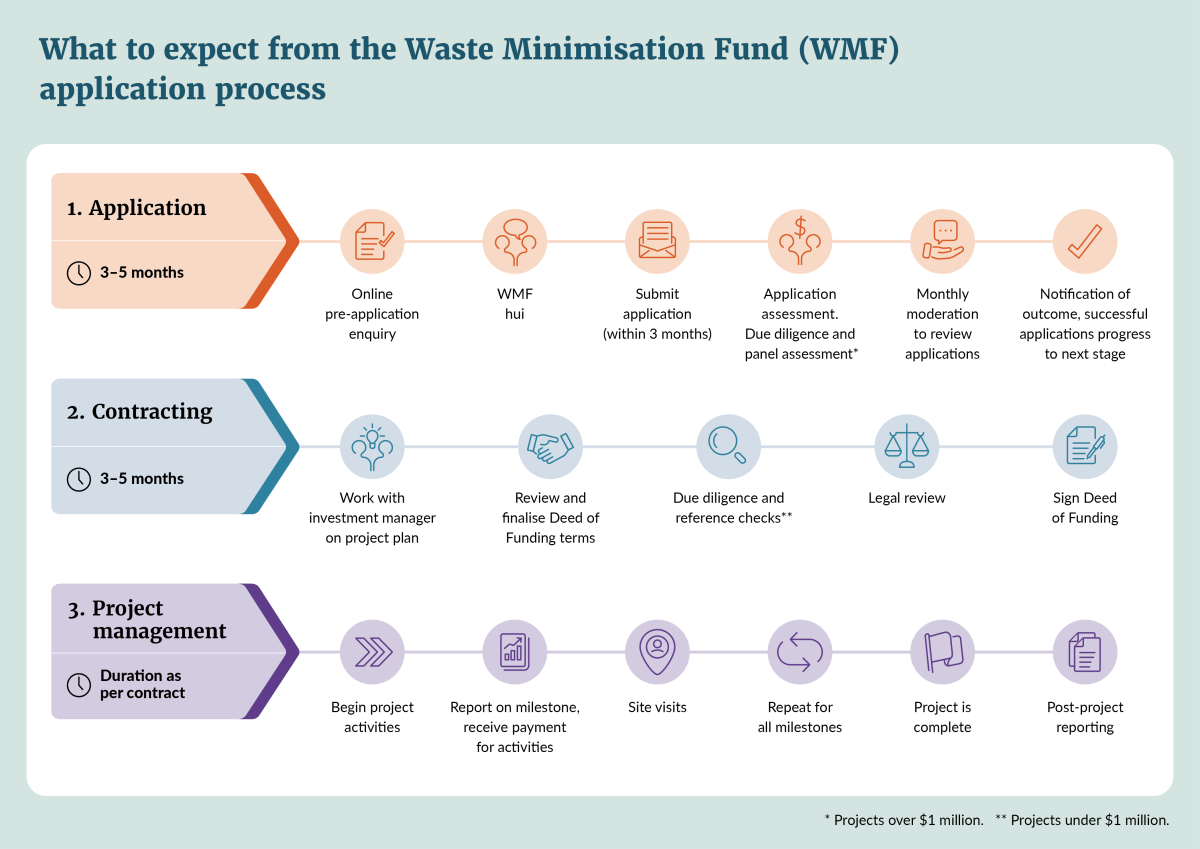Step 1 – Check your project eligibility and alignment
Read our gazetted criteria (Gazette website) to check your project is eligible.
Read the What is being funded section and ensure that your project aligns with the current investment priorities.
Step 2 - Get in touch
Fill out our short enquiry form if you think your project is eligible and aligns with what is being funded.
The WMF Guide for Applicants includes information about the enquiry form as well as the application stage. Because the enquiry form is managed through our Funds Management System (FMS), our FMS User Guide will help to get you started.
Read the WMF Guide for Applicants.
Read the Fund Management System User Guide.
Once we receive your form, we will get in touch within three weeks to inform you of next steps.
Step 3 – Application stage
If invited to the application stage, your application will build on the information you provided in the enquiry form.
Once completed and submitted, we will assess your application. This process may take between three to five months to complete depending on the size, scope and complexity of the application.
Projects requesting more than $1 million in funding
For projects requesting more than $1 million in funding, a business case, emissions calculations and financial documentation will be required.
These projects will require additional assessment steps including an independent panel review and approval by the Minister for the Environment.
Step 4 – Contracting stage
If your funding is approved, you will begin contracting. At the contracting stage, you will be required to submit a project plan and detailed budget. Your investment manager will provide guidelines to help you with this.
The contract project planning may be subject to external due diligence or a legal review depending on the size and complexity of your project. Successful completion of these steps will lead to signing the Deed of Funding.
The contracting stage may take between three to five months to complete. Once the deed is signed, your project is active.
Deed of funding - example (PDF, 327KB)

